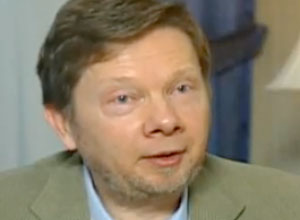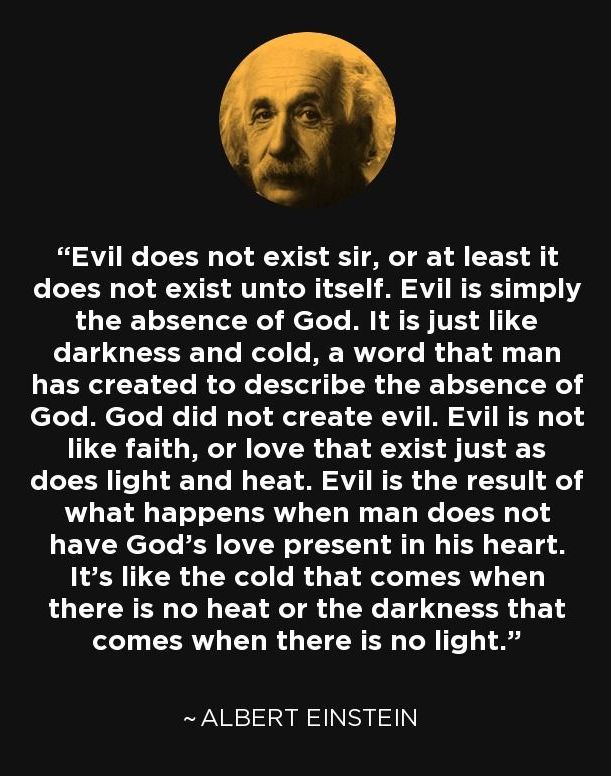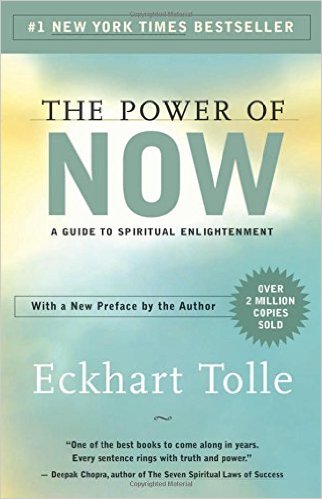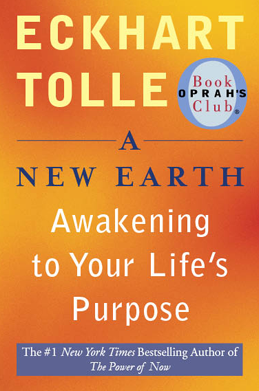|
Eckhart Tolle, The New Earth, The Power Of Now

EMOTION: THE BODY'S REACTION TO YOUR MIND
What about emotions? I get caught up in my emotions more than I do in my mind.
Mind, in the way I use the word, is not just thought. It includes your emotions as well as all unconscious mental-emotional reactive patterns.
Emotion arises at the place where mind and body meet. It is the body's reaction to your mind - or you might say, a reflection of your mind in the body.
For example, an attack thought or a hostile thought will create a build-up of energy in the body that we call anger. The body is getting ready to fight. The thought that you are being threatened, physically or psychologically, causes the body to contract, and this is the physical side of what we call fear.
Research has shown that strong emotions even cause
changes in the biochemistry of the body. These biochemical changes represent the physical or material aspect of the emotion. Of course, you are not usually conscious of all your thought patterns, and it is often only through watching your emotions that you can bring them into awareness.
The more you are identified with your thinking, your likes and dislikes, judgments and interpretations, which is to say the less present you are as the watching consciousness, the stronger the emotional energy charge will be, whether you are aware of it or not. If you cannot feel your emotions, if you are cut off from them, you will eventually experience them on a purely physical level, as a physical problem or symptom...
A strong unconscious emotional pattern may even manifest as an external event that appears to just happen to you. For
example, I have observed that people who carry a lot of anger inside without being aware of it and without expressing it are more likely to be attacked, verbally or even physically, by other angry people, and often for no apparent reason. They have a strong emanation of anger that certain people pick up subliminally and that triggers their own latent anger.
If you have difficulty feeling your emotions, start by focusing attention on the inner energy field of your body. Feel the body from within. This will also put you in touch with your emotions...
You say that an emotion is the mind's reflection in the body. But sometimes there is a conflict between the two: the mind says "no" while the emotion says "yes," or the other way around.
If you really want to know your mind, the body will always give you a truthful reflection, so look at the emotion or rather feel it in your body. If there is an apparent conflict between them, the thought will be the lie, the emotion will be the truth. Not the ultimate truth of who you are, but the relative truth of your state of mind at that time.
Conflict between surface thoughts and unconscious mental processes is certainly common. You may not yet be able to bring your unconscious mind activity into awareness as
thoughts, but it will always be reflected in the body as an emotion, and of this you can become aware. To watch an emotion in this way is basically the same as listening to or watching a thought, which I described earlier. The only difference is that, while a thought is in your head, an emotion has a strong physical component and so is primarily felt in the body.
You can then allow the emotion to be there without being controlled by it. You no longer are the emotion; you are the watcher, the observing presence. If you practice this, all that is unconscious in you will be brought into the light of consciousness.
So observing our emotions is as important as observing our thoughts?
Yes. Make it a habit to ask yourself ‘What's going on inside me at this moment?’ That question will point you in the right direction. But don't analyze, just watch. Focus your attention within. Feel the energy of the emotion. If there is no emotion present, take your attention more deeply into the inner energy field of your body. It is the doorway into Being.
An emotion usually represents an amplified and energized thought pattern, and because of its often overpowering energetic charge, it is not easy initially to stay present enough to be able to watch it. It wants to take you over, and it usually succeeds - unless there is enough presence in you. If you are pulled into unconscious identification with the emotion through lack of presence, which is normal, the emotion temporarily becomes "you."
Often a vicious circle builds up between your thinking and the emotion: they feed each other. The thought pattern creates a magnified reflection of itself in the form of an emotion, and the vibrational frequency of the emotion keeps feeding the original thought pattern. By dwelling mentally on the situation, event, or person that is the perceived cause of the emotion, the thought feeds energy to the emotion, which in turn energizes the thought pattern, and so on.
Basically, all emotions are modifications of one primordial, undifferentiated emotion that has its origin in the loss of awareness of who you are beyond name and form. Because of its undifferentiated nature, it is hard to find a name that precisely describes this emotion. "Fear" comes close, but apart from a continuous sense of threat, it also includes a deep sense of abandonment and incompleteness. It may be best to use a term that is as undifferentiated as that basic emotion and simply call it "pain."
One of the main tasks of the mind is to fight or remove that emotional pain, which is one of the reasons for its incessant activity, but all it can ever achieve is to cover it up temporarily. In fact, the harder the mind struggles to get rid of the pain, the greater the pain. The mind can never find the solution, nor can it afford to allow you to find the solution, because it is itself an intrinsic part of the "problem." Imagine a chief of police trying to find an arsonist when the arsonist is the chief of police. You will not be free of that pain until you cease to derive your sense of self from identification with the mind, which is to say from ego. The mind is then toppled from its place of power and Being reveals itself as your true nature.
Yes, I know what you are going to ask.
I was going to ask: What about positive emotions such as love and joy?
They are inseparable from your natural state of inner connectedness with Being. Glimpses of love and joy or brief moments of deep peace are possible whenever a gap occurs in the stream of thought. For most people, such gaps happen rarely and only accidentally, in moments when the mind is rendered "speechless," sometimes triggered by great beauty,
extreme physical exertion, or even great danger. Suddenly, there is inner stillness. And within that stillness there is a subtle but intense joy, there is love, there is peace.
Usually, such moments are short-lived, as the mind quickly resumes its noise-making activity that we call thinking. Love, joy, and peace cannot flourish until you have freed
yourself from mind dominance. But they are not what I would call emotions. They lie beyond the emotions, on a much deeper level.
So you need to become fully conscious of your emotions and be able to feel them before you can feel that which lies beyond them. Emotion literally means "disturbance." The word comes from the Latin emovere, meaning "to disturb."
Love, joy, and peace are deep states of Being or rather three aspects of the state of inner connectedness with Being. As such, they have no opposite. This is because they arise from
beyond the mind. Emotions, on the other hand, being part of the dualistic mind, are subject to the law of opposites. This simply means that you cannot have good without bad.

So in the unenlightened, mind-identified condition, what is sometimes wrongly called joy is the usually short-lived pleasure side of the continuously alternating pain/pleasure cycle. Pleasure is always derived from something outside you, whereas joy arises from within. The very thing that gives you pleasure today will give you pain tomorrow, or it will leave you, so its absence will give you pain. And what is often referred to as love may be pleasurable and exciting for a while, but it is an addictive clinging, an extremely needy condition that can turn into its opposite at the flick of a switch.
Many "love" relationships, after the initial euphoria has passed, actually oscillate between "love" and hate, attraction and attack. Real love doesn't make you suffer. How could it? It doesn't suddenly turn into hate, nor does real joy turn into pain. As I said, even before you are enlightened - before you have freed yourself from your mind - you may get glimpses of true joy, true love, or of a deep inner peace, still but vibrantly alive.
These are aspects of your true nature, which is usually
obscured by the mind. Even within a "normal” addictive relationship, there can be moments when the presence of something more genuine, something incorruptible, can be felt. But they will only be glimpses, soon to be covered up again through mind interference.
It may then seem that you had something very precious and lost it, or your mind may convince you that it was all an illusion anyway. The truth is that it wasn't an illusion, and you cannot lose it. It is part of your natural state, which can be obscured but can never be destroyed by the mind. Even when the sky is heavily overcast, the sun hasn't disappeared. It’s still there on the other side of the clouds.
The Buddha says that pain or suffering arises through desire or craving and that to be free of pain we need to cut the bonds of desire. All cravings are the mind seeking salvation or fulfillment in external things and in the future as a substitute for the joy of Being. As long as I am my mind, I am those cravings, those needs, wants, attachments, and aversions, and apart from them there is no "I" except as a mere possibility, an unfulfilled potential, a seed that has not yet sprouted. In that state, even my desire to become free or enlightened is just another craving for fulfillment or completion in the future.
So don't seek to become free of desire or "achieve" enlightenment. Become present. Be there as the observer of the mind. Instead of quoting the Buddha, be the Buddha,
be "the awakened one," which is what the word buddha means.
Humans have been in the grip of pain for eons ... entered the realm of time and mind, and lost awareness of Being. At that point, they started to perceive themselves as meaningless fragments in an alien universe, unconnected to the Source and to each other.
Pain is inevitable as long as you are identified with your mind, which is to say as long as you are unconscious, spiritually speaking. I am talking here primarily of emotional pain, which is also the main cause of physical pain and physical disease. Resentment, hatred, self-pity, guilt, anger, depression, jealousy, and so on, even the slightest irritation, are all forms of pain.
And every pleasure or emotional high contains within itself the seed of pain: its inseparable opposite, which will manifest in time. Anybody who has ever taken drugs to get “high” will know that the high eventually turns into a low, that the pleasure turns into some form of pain.
Many people also know from their own experience how easily and quickly an intimate relationship can turn from a source of pleasure to a source of pain. Seen from a higher perspective, both the negative and the positive polarities are faces of the same coin, are both part of the underlying pain that is inseparable from the mind-identified egoic state of consciousness.
There are two levels to your pain: the pain that you create now, and the pain from the past that still lives on in your mind and body.
THE BIRTH OF EMOTION
In addition to the movement of thought, although not entirely separate from it, there is another dimension to the ego: emotion. This is not to say that all thinking and all emotion are of the ego. They turn into ego only when you identify with them and they take you over completely, that is to say, when they become “I.”
The physical organism, your body, has its own intelligence, as does the organism of every other lifeform. And that intelligence reacts to what your mind is saying, reacts to your thoughts.
So emotion is the body's reaction to your mind. The body's intelligence is, of course, an inseparable part of universal intelligence, one of its countless manifestations. It gives temporary cohesion to the atoms and molecules that make up your physical organism. It is the organizing principle behind the workings of all the organs of the body, the conversion of oxygen and food into energy, the heartbeat and circulation of the blood, the immune system that protects the body from invaders, the translation of sensory input into nerve impulses that are sent to the brain, decoded there, and reassembled into a coherent inner picture of outer reality.
All these, as well as thousands of others simultaneously occurring functions, are coordinated perfectly by that intelligence. You don't run your body. The intelligence does. It also is in charge of the organism's responses to its
environment. This is true for any lifeform. It is the same intelligence that brought the plant into physical form and then manifests as the flower that comes out of the plant, the flower that opens its petals in the morning to receive the rays of the sun and closes them at nighttime. It is the same intelligence that manifests as Gaia, the complex living being that is planet earth.
This intelligence gives rise to instinctive reactions of the organism to any threat or challenge. It produces responses in animals that appear to be akin to human emotions: anger, fear, pleasure. These instinctive responses could be considered primordial forms of emotion. In certain situations, human beings experience instinctive responses in the same way that animals do. In the face of danger, when the survival of the organism is threatened, the heart beats faster, the muscles contract, breathing becomes rapid in preparation for fight or flight.
Primordial fear. When being cornered, a sudden flareup of intense energy gives strength to the body that it didn't have before.
Primordial anger. These instinctive responses appear akin to
emotions, but are not emotions in the true sense of the word.
The fundamental difference between an instinctive response and an emotion is this: An instinctive response response is the body's direct response to some external situation. An emotion, on the other hand, is the body's response to a thought. Indirectly, an emotion can also be a response to an actual situation or event, but it will be a response to the event seen through the filter of a mental interpretation, the filter of thought, that is to say, through the mental concepts of good and bad, like and dislike, me and mine.
For example, it is likely you won't feel any emotion when you are told that someone's car has been stolen, but when it is your car, you will probably feel upset. It is amazing how much emotion a little mental concept like “my” can generate.
Although the body is very intelligent, it cannot tell the difference between an actual situation and a thought. It reacts to every thought as if it were a reality. It doesn't know it is just a thought. To the body, a worrisome, fearful thought means “I am in danger,” and it responds accordingly, even though you may be lying in a warm and comfortable bed at night. The heart beats faster, muscles contract, breathing becomes rapid. There is a buildup of energy, but since the danger is only a mental fiction, the energy has no outlet. Part of it is fed back to the mind and generates even more anxious thought. The rest of the energy turns toxic and interferes with the harmonious functioning of the body.
EMOTIONS AND THE EGO
The ego is not only the unobserved mind, the voice in the head which pretends to be you, but also the unobserved emotions that are the body's reaction to what the voice in the head is saying.
We have already seen what kind of thinking the egoic voice engages in most of the time and the dysfunction inherent in the structure of its thought processes, regardless of content. This dysfunctional thinking is what the body reacts to with negative emotion.
The voice in the head tells a story that the body believes in and reacts to. Those reactions are the emotions. The emotions, in turn, feed energy back to the thoughts that created the emotion in the first place. This is the vicious
circle between unexamined thoughts and emotions, giving rise to emotional thinking and emotional storymaking.
The emotional component of ego differs from person to person; in some egos, it is greater than in others. Thoughts that trigger emotional responses in the body may sometimes come so fast that before the mind has had time to voice them, the body has already responded with an emotion, and the emotion has turned into a reaction. Those thoughts exist at a preverbal stage and could be called unspoken, unconscious assumptions.
They have their origin in a person's past conditioning, usually from early childhood. “People cannot be trusted” would be an example of such an unconscious assumption in a person whose primordial relationships, that is to say, with parents or siblings who were not supportive and did not inspire trust. Here are a few more common unconscious assumptions: “Nobody
respects and appreciates me. I need to fight to survive. There is never enough money. Life always lets you down. I don't deserve abundance. I don't deserve love.”
Unconscious assumptions create emotions in the body which in turn generate mind activity and/or instant reactions. In this way, they create your personal reality. The voice of the ego continuously disrupts the body's natural state of well-being.
Almost every human body is under a great deal of strain and
stress, not because it is threatened by some external factor but from within the mind. The body has an ego attached to it, and it cannot but respond to all the dysfunctional thought patterns that make up the ego. Thus, a stream of negative emotion accompanies the stream of incessant and compulsive thinking.
What is a negative emotion? An emotion that is toxic to the body and interferes with its balance and harmonious functioning. Fear, anxiety, anger, bearing a grudge, sadness, hatred or intense dislike, jealousy, envy – all disrupt the energy flow through the body, affect the heart, the immune system, digestion, production of hormones, and so on. Even mainstream medicine, although it knows very little about how the ego operates yet is beginning to recognize the connection between negative emotional states and physical disease. An emotion that does harm to the body also infects the people you come into contact with and indirectly, through a process of chain reaction, countless others you never meet. There is a generic term for all negative emotions: unhappiness.
Do positive emotions then have the opposite effect on the physical body? Do they strengthen the immune system, invigorate and heal the body?
They do, indeed, but we need to differentiate between positive emotions that are ego-generated and deeper emotions that emanate from your natural state of connectedness with Being.
Positive emotions generated by the ego already contain within themselves their opposite into which they can quickly turn. Here are some examples.
What the ego calls love is possessiveness and addictive clinging that can turn into hate within a second. Anticipation about an upcoming event, which is the ego's overvaluation of the future, easily turns into its opposite – let-down or disappointment – when the event is over or doesn't fulfill the
ego's expectations. Praise and recognition make you feel alive and happy one day; being criticized or ignored make you dejected and unhappy the next. The pleasure of a wild party turns into bleakness and a hangover the next morning. There is no good without bad, no high without low.
Ego-generated emotions are derived from the mind's identification with external factors which are, of course, all unstable and liable to change at any moment. The deeper emotions are not really emotions at all but [permanent] states of Being.
Emotions exist within the realm of opposites. States of Being can be obscured, but they have no opposite. They emanate from within you as the love, joy, and peace that are aspects of your true nature.
|




